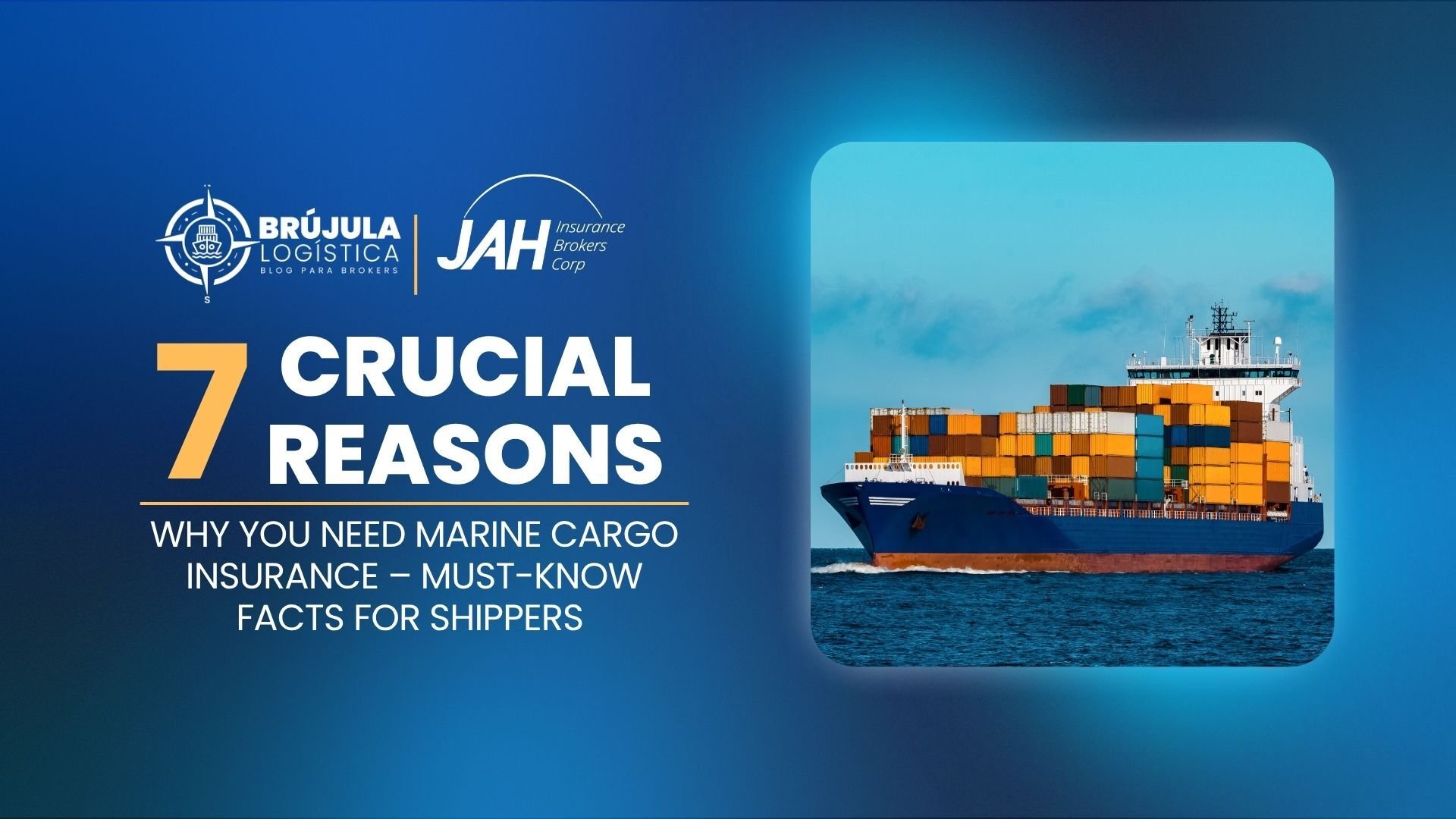.jpg?width=1920&height=1080&name=Ecuador%20Adopta%20las%20Reglas%20de%20Hamburgo%20(2).jpg)
Why Marine Cargo Insurance Is Essential for Shippers
Why do I need marine cargo insurance? Discover the top reasons to protect your goods in transit from loss, damage, and liability with marine cargo insurance.
Why Do I Need Marine Cargo Insurance?
In today’s global economy, goods travel across oceans, skies, and borders daily. But despite all the advancements in logistics, one question continues to concern businesses and individuals alike: 'Why do I need marine cargo insurance?' If you're involved in importing, exporting, or even local shipping via sea, understanding marine cargo insurance isn’t just optional—it’s essential.
Understanding Marine Cargo Insurance
Marine cargo insurance is a specialized policy that protects goods being transported across water (and often includes land and air transit) against potential loss or damage. Whether it's shipping raw materials or finished goods, this coverage acts as a financial safety net. Anyone who owns goods being shipped—manufacturers, retailers, wholesalers, importers, exporters, and even individuals sending personal items internationally—should consider marine cargo insurance.
The Importance of Protecting Goods in Transit
Despite tight security and logistics protocols, maritime transport is fraught with risks. Common issues include container losses overboard, rough handling at ports, and accidents due to bad weather. Imagine this: A container full of electronics bound for a retailer sinks in rough seas. Without insurance, the company absorbs a massive loss. With the right policy, they can file a claim and recover most—if not all—of the value.
Types of Marine Cargo Insurance Policies
There are various types of policies such as open cover and specific cover. Open cover policies provide ongoing coverage for all shipments over a period, whereas specific cover insures one-time shipments. Additionally, policies are either all risk (comprehensive) or named perils (specific risks only).
Legal Requirements and Industry Norms
While marine cargo insurance isn't always legally required, many international trade agreements mandate it. Moreover, carrier liability is often limited, so even if your goods are damaged due to the carrier’s fault, you may only recover a fraction of their value without insurance.
Financial Benefits of Marine Cargo Insurance
Insurance shifts the financial burden of loss or damage from your business to the insurer, helping you maintain operations. It allows for smoother business continuity and customer satisfaction by ensuring compensation when unexpected events disrupt the supply chain.
How Claims Work: Process & Documentation
To file a claim, you need to notify your broker or insurer, gather documentation, and cooperate during inspections. Our policy have structured claim processes to streamline settlements. Tips to avoid rejection include timely reporting and compliant packaging.
Choosing the Right Insurance Provider
Look for comprehensive coverage, and a strong claims reputation. Always read the fine print, especially regarding exclusions like war zones or delay-related issues. At JAH Insurance Brokers, we clearly explain coverages, exclusions, and all policy details in plain and understandable language.
Real-World Scenarios
Examples include theft at transit ports, fire aboard vessels, hurricanes, or even containers being dropped during unloading. These scenarios highlight the value of having insurance in place.
Impact on Supply Chain and Customer Trust
Shipping delays or damaged goods can disrupt your entire supply chain, causing backorders and losing customers. Being insured shows professionalism and builds customer trust.
The Cost of Not Having Marine Cargo Insurance
Skipping insurance might save short-term costs, but a single incident can result in financial devastation. Additionally, legal liability in contracts can place unexpected burdens on uninsured shippers.
Frequently Asked Questions
- Q: Is marine cargo insurance mandatory?
A: No, but it's strongly recommended. Some trade agreements may require one party to insure the goods.
- Q: How much does it cost?
A: It typically ranges up to 1% of the cargo’s value, depending on risks and coverage.
- Q: What if the carrier is at fault?
A: You may still only recover limited compensation unless you have marine cargo insurance.
- Q: Are there deductibles?
A: Yes, there is always a deductible — it’s the portion of the loss that the insurer does not cover.
- Q: Can I insure part of the cargo only?
A: Yes, but it’s not recommended. Partial coverage may create legal and financial gaps.
- Q: Is inland transit included?
A: Yes. Our policy offers 'warehouse-to-warehouse' coverage.
Conclusion
So, why do I need marine cargo insurance? Because protecting your shipments from financial loss is not just smart—it’s critical. With countless risks in international shipping, having marine cargo insurance ensures you’re prepared for the unexpected, maintain trust with customers, and keep your business afloat no matter what the tides bring.


